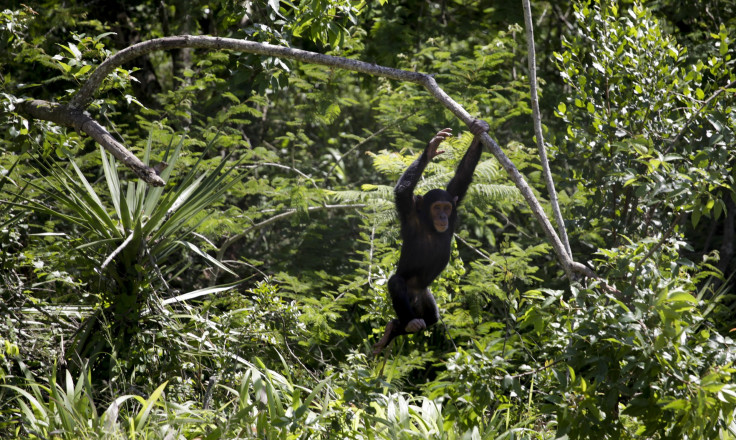Chimps Should Have The Same Basic Rights As Humans, Says Attorney Steven Wise

Man should be doing better by his closest relative, according to attorney Steven Wise, who presented his argument for why chimpanzees should have the same rights as humans at the TED 2015 conference held last week in Vancouver, Canada. Wise is the president of the Nonhuman Rights Project (NhRP) and has filed a lawsuit to protect two chimpanzees housed at Stony Brook University.
In his talk at TED (Technology, Entertainment, Design), Wise discussed how he is using the legal system to treat animals like humans. He likened the treatment of chimps, dolphins and elephants to slavery, drawing on the distinction between "legal things" and "legal persons," according to the TED blog. "Our plaintiffs will be animals for whom there is clear scientific evidence of such complex cognitive abilities as self-awareness and autonomy. Currently that evidence exists for elephants, dolphins and whales, and all four species of great apes. So, for the foreseeable future, our plaintiffs are likely to come from these three groups," the NhRP explained on its website.
On Monday, Wise refiled a lawsuit for a writ of habeas corpus for two chimpanzees, Hercules and Leo, being used in locomotion research at Stony Brook University on Long Island, according to the NhRP. A writ of habeas corpus is a judge's order that the person of interest be brought to court. If the judge grants the order, that would "assign rights of personhood," according to Agence France-Presse.
Wise is using the case of James Somerset, a slave who was granted a writ of habeas corpus in the U.K. in 1772, as a basis for the lawsuit, the TED blog explains. "Like our other chimpanzee plaintiffs, Hercules and Leo are using habeas corpus to secure immediate release from unjust confinement and to obtain the greatest degree of freedom possible," Wise said of the lawsuit. If the suit is successful, Hercules and Leo will be released to Save the Chimps, a sanctuary in Florida. NhRP also is appealing two other lawsuits in New York regarding the cases of chimpanzees Tommy and Kiko.
In December 2014, there were reports of an orangutan granted basic human rights in Argentina. Sandra was being housed in a zoo and a court recognized the ape as a "nonhuman person," Reuters reported. Despite the reports, Wise is skeptical of the case and has doubts the court granted any rights to Sandra.
There's also the case of the "monkey selfie" and photographer David Slater's fight for the photo's copyright. Slater says the monkey pressed the shutter button on the camera and therefore owns the picture. The U.S. Copyright Office ruled against Slater in August 2014, but he is fighting to overturn that decision.
© Copyright IBTimes 2024. All rights reserved.






















